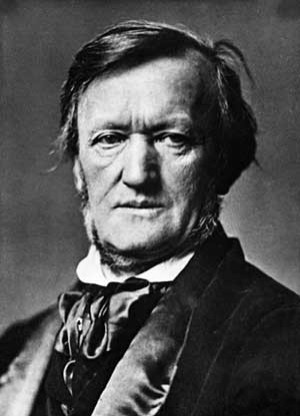Bayreuth Music Festival: Still Stained By Wagner’s Links To Nazism

The annual Bayreuth music festival in Germany, which showcases the music of 19th century German composer Richard Wagner, has long been overshadowed by Wagner’s anti-Semitism and by Adolph Hitler’s idolatry of the creator of such immortal epic operas as ‘Die Walküre’ (The Valkyrie) and ‘Götterdämmerung’ (Twilight of the Gods), among many others.
Not only did Wagner compose soul-stirring musical extravaganzas that glorified Germany’s ancient Teutonic past, but he also wrote many tracts that vilified Jews (although his anti-Semitism was hardly unusual in 19th century Europe).
One essay written in 1850, "Das Judenthum in der Musik" ("Jewishness in Music") criticized Jewish musical rivals Felix Mendelssohn and Giacomo Meyerbeer and claimed that the Jews (an “alien” race) were destructive to German society and culture, and that most Germans were “repelled” by Jews.
Wagner was also reportedly influence by the racialist theories of Joseph Arthur Comte de Gobineau, the aristocratic French novelist who warned that the European races were in danger of being subsumed and mongrelized by what he termed “inferior” peoples.
Of the Jews, Wagner wrote: “Only one thing can redeem you (Jews) from the burden of your curse... total destruction;” “Judaism is the evil conscience of our modern civilization” and “Conscience is a Jewish invention. It is a blemish, like circumcision.”
Wagner was powerfully nationalistic, having written: "The Volk [people] has always been the essence of all the individuals who constituted a commonality. In the beginning, it was the family and the races; then the races united through linguistic equality as a nation."
Ironically, Wagner had many close Jewish friends throughout his life, including Samuel Lehrs, a philologist he befriended in Paris; Karl Tausig, a brilliant pianist who was a student of Wagner’s friend Franz Liszt; Jacques Halévy, a French composer; and Heinrich Porges, an Austrian writer.
Moreover, the Jewish conductor Hermann Levi was personally chosen by Wagner to supervise the first performance of “Parsifal” at Bayreuth and became a fixture at the festival for two decades.
Still, the unfortunate link between Wagner and Hitler (who was born six years after the great composer died) remains a controversial stain on Bayreuth and on Wagner’s legacy as a whole.
It is indeed true that Wagner’s daughter-in-law, the English-born Winifred Wagner, was a strong supporter of Nazism and a close acquaintance of Hitler himself.
As for Hitler, his obsession with Wagner commenced in early childhood.
In ‘Mein Kampf’ the future Chancellor wrote: "At the age of twelve, I saw ... the first opera of my life, ‘Lohengrin.’ In one instant I was addicted. My youthful enthusiasm for the Bayreuth Master [Wagner] knew no bounds."
Regarding Wagner’s “Parsifal,” Hitler wrote: "What is celebrated is not the Christian… religion of compassion, but pure and noble blood, blood whose purity the brotherhood of initiates has come together to guard.”
In January 1933, after his election as German Chancellor, Hitler staged a grand celebration of the 50th year of Wagner’s death in his birthplace of Leipzig.
Thereafter, until the fall of the Third Reich in 1945, the annual Bayreuth festival was used as a propaganda tool by the Nazis, with Der Fuehrer personally attending the ceremonies until 1939.
Wagner is hardly the only prominent anti-Semitic composed. Such luminaries as J S Bach, Robert Schumann, Frédéric Chopin, Modest Petrovich Mussorgsky, Anton Webern, Alfred Cortot and Willem Mengelberg all were known to have expressed anti-Semitic views in their lives.
In the 21st century, Wagner’s music remains controversial, particularly in Israel, where an “unofficial ban” exists against public performances of his music.
In June 2012, a planned performance of Wagnerian pieces at Tel Aviv University was cancelled over apparent complaints from the public.
Parts of Wagner’s works, however, have been performed in the Jewish state. In 2001, the Jewish conductor Daniel Barenboim led a performance that featured selections from Wagner's "Tristan und Isolde."
© Copyright IBTimes 2024. All rights reserved.





















